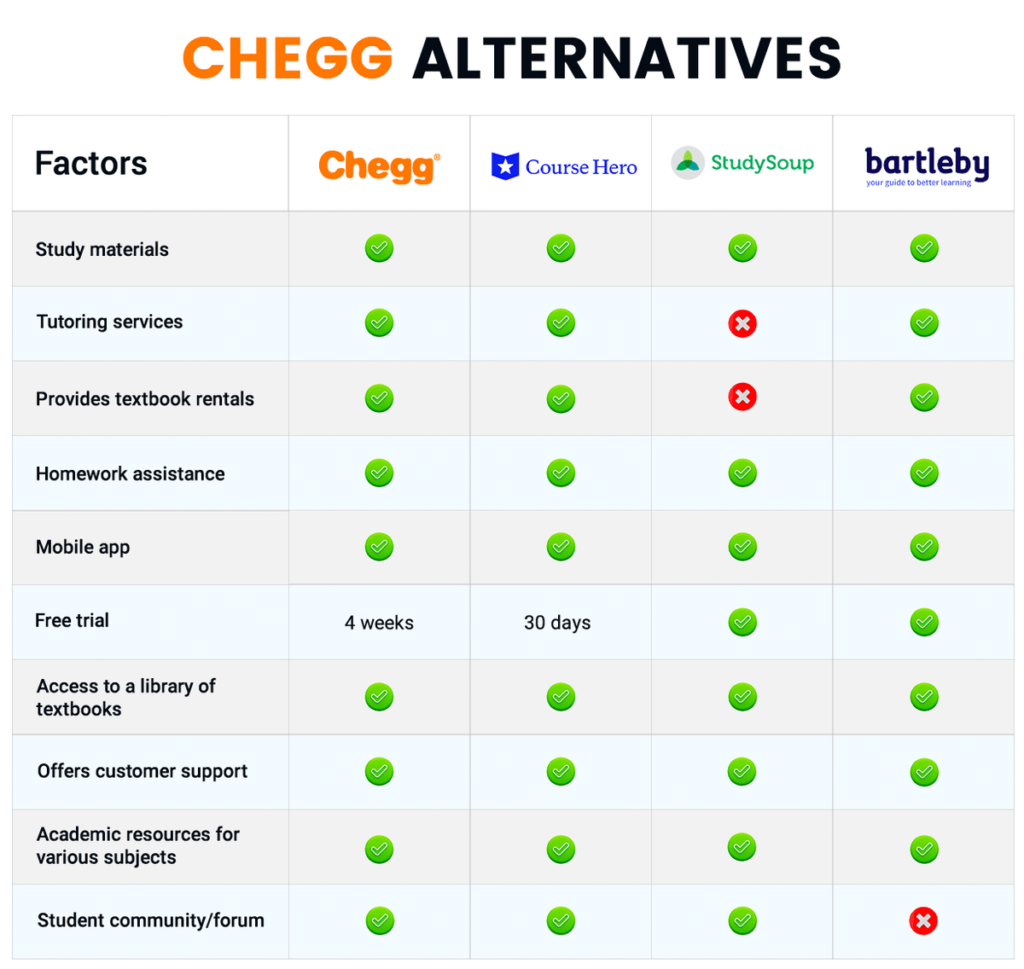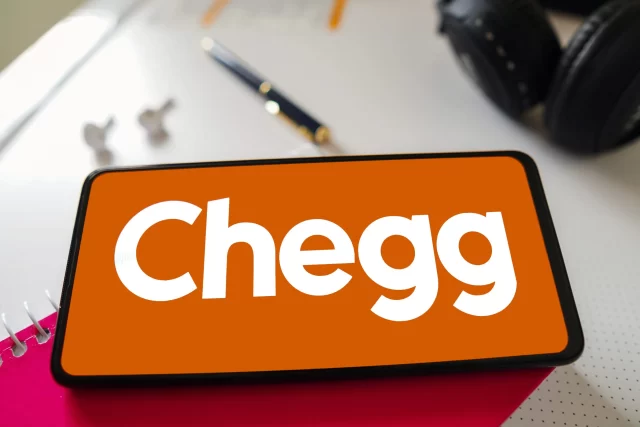Chegg is a prominent educational technology company that provides various services to students and educators. The company, established in 2005, has become well-known for its textbook rental services, tutoring, and study resources. This log explores what Chegg is, how it can be used, and the advantages and disadvantages associated with it.
What is Chegg?
Chegg began as a textbook rental service aimed at providing students with affordable access to required textbooks. Over time, the platform has expanded its offerings significantly. Today, Chegg is recognized for its comprehensive range of educational tools, including textbook rentals, eTextbooks, homework help, online tutoring, and test preparation resources. Additionally, Chegg offers career services, such as resume building and job search assistance.
How to Use Chegg
Chegg’s platform is accessible through both its website and mobile app. To use Chegg, a user typically follows these steps:
- Sign Up or Log In: An account must be created using an email address or social media login. Once registered, users can access the full range of Chegg’s services.
- Browse Services: Users can browse through various services offered by Chegg. Textbook rentals can be searched by title, author, or ISBN. For those seeking tutoring, subjects and topics are listed for easy navigation.
- Rent or Buy Textbooks: Textbooks can be rented or purchased directly from the Chegg website. Rentals are available for physical copies as well as digital eTextbooks.
- Access Study Help: Chegg’s study help features include textbook solutions, expert Q&A, and practice problems. Subscribers can ask specific questions and receive detailed answers from experts.
- Utilize Tutoring Services: Online tutoring is available on-demand. Users can schedule sessions or connect with tutors for immediate assistance.
- Explore Career Services: Chegg also provides tools for job seekers, including resume builders and career advice.
Pros of Using Chegg
- Cost Savings: Significant savings can be achieved through textbook rentals compared to purchasing new books. This can make higher education more affordable for students.
- Convenience: The ability to rent textbooks and access digital copies instantly is highly convenient. Users can also take advantage of Chegg’s mobile app to study on the go.
- Comprehensive Study Resources: Chegg offers a vast array of study resources, including step-by-step solutions and expert answers, which can help students better understand their coursework.
- On-Demand Tutoring: The availability of on-demand tutoring means students can get help whenever they need it, without having to schedule appointments in advance.
- Career Services: Resume building and career advice are valuable features for students preparing to enter the job market.
Cons of Using Chegg
- Cost of Subscription: While textbook rentals are affordable, Chegg’s subscription services for study help and tutoring can be relatively expensive. This may not be cost-effective for all students.
- Limited Free Access: Some of Chegg’s most useful features are behind a paywall. Accessing detailed textbook solutions and expert help requires a subscription.
- Potential for Academic Dishonesty: The availability of solutions and answers can lead to academic dishonesty if used improperly. Students might be tempted to rely too heavily on these resources rather than working through problems independently.
- Quality of Tutoring: The quality of tutoring can vary depending on the tutor. While many tutors are highly qualified, experiences may differ from one user to another.
- Customer Service Issues: Some users have reported difficulties with Chegg’s customer service, including issues with returns and billing.
Log: Top 10 Chegg Alternatives

In the educational landscape, Chegg has established itself as a prominent player, offering textbook rentals, homework help, and study resources. However, for various reasons, individuals might seek alternatives. These alternatives provide similar services and can cater to different learning needs. The following log discusses ten notable Chegg alternatives that have been recognized for their effectiveness in supporting students.
1. Khan Academy
Khan Academy is widely regarded as a leading educational platform. A vast array of subjects is covered, including mathematics, science, and humanities. Interactive exercises and instructional videos are provided to enhance understanding. The platform is praised for its comprehensive and free educational resources, which have been utilized by learners globally.
2. Coursera
Coursera is a well-known platform offering online courses from top universities and institutions. A variety of subjects and specializations are available, allowing users to learn at their own pace. Certifications and degrees can be obtained, which are recognized by employers. The platform’s flexibility and quality content are valued by many learners.
3. Udemy
Udemy is another popular platform for online learning. A wide range of courses is offered, spanning different disciplines and skill levels. Instructors from various fields contribute to the platform, making it possible for users to find courses that suit their needs. The ability to purchase courses individually, often with lifetime access, is a feature appreciated by users.
4. Study.com
Study.com provides a diverse selection of study resources, including video lessons, practice tests, and quizzes. The platform caters to students of all levels, from elementary to college. It is known for its organized content and structured approach to learning, which aids in efficient study sessions.
5. Tutor.com
Tutor.com offers personalized tutoring services across a range of subjects. Live tutoring sessions with experts are available, and users can get help with homework, test preparation, and specific academic questions. The platform’s interactive approach ensures that students receive tailored support.
6. Slader
Slader is a platform specifically designed to provide textbook solutions. Solutions to textbook problems are available, which helps students understand how to approach and solve similar problems. The focus on problem-solving makes it a valuable resource for those who need additional help with their coursework.
7. Brainly
Brainly is a community-based platform where students can ask questions and receive answers from peers and experts. The collaborative nature of the platform allows users to engage in discussions and find solutions to their academic challenges. The peer-to-peer model is particularly useful for collaborative learning.
8. Quizlet
Quizlet is a tool for creating and studying flashcards, which can be used for various subjects and topics. The platform supports different study modes, including games and tests, to enhance retention and understanding. Users can create their own flashcards or use those shared by others.
9. Wolfram Alpha
Wolfram Alpha is known for its computational intelligence and problem-solving capabilities. Users can input mathematical problems or queries, and the platform provides detailed solutions and explanations. Its use in solving complex problems and providing in-depth answers is a significant advantage for students.
10. SparkNotes
SparkNotes offers study guides and summaries for literature and other subjects. The platform helps students understand key themes, characters, and plot points in various works of literature. The concise and accessible summaries provided are useful for quick reviews and deeper comprehension.
Conclusion
Chegg has evolved from a textbook rental service to a comprehensive educational platform offering a range of resources designed to support students in their academic and career pursuits. By providing access to affordable textbooks, extensive study aids, and on-demand tutoring, Chegg has positioned itself as a valuable tool for many learners. However, it is important for users to weigh the benefits against the potential drawbacks, such as the cost of subscriptions and the risk of academic dishonesty. Evaluating these factors can help students make informed decisions about how to best utilize Chegg’s services to support their educational goals.










